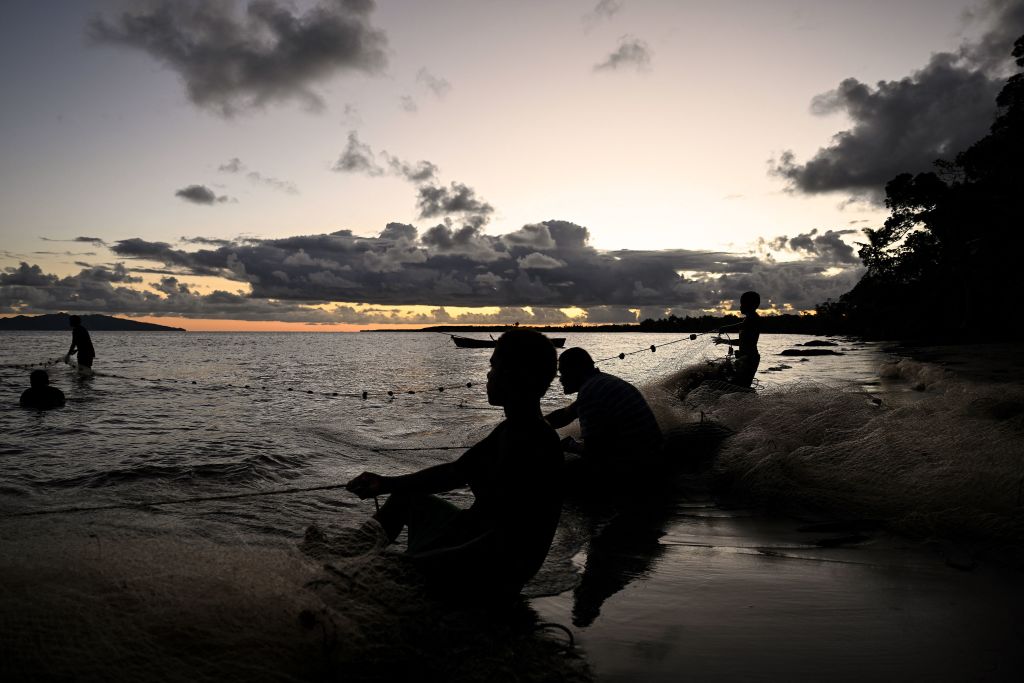
Almost three years have passed since the leaders of the four Quad countries pledged to co-operate on critical technologies to ensure that innovation is consistent with a free, open, inclusive and resilient Indo-Pacific. With technology and geopolitics both moving quickly, the Quad needs to focus on delivering on its commitments.
The grouping’s tech agenda now spans horizon-scanning, education and research, technology design, investment, supply chain resilience, and assistance to third countries. Implementation is well underway, although the full impact of many initiatives is yet to be realised.
Take for example the Quad investors network (QUIN) established in May 2023 to facilitate, and address barriers to, investment in 10 strategic sectors such as clean energy and semiconductors. It does not have an investment fund to draw from but focuses on connecting public, private and philanthropic stakeholders. Guided by a high-powered advisory board and with support from America’s Frontier Fund, the QUIN launched the Quad Center of Excellence for Quantum Information Science, hosted a Quad Investment and Technology Dialogue at the White House in October 2023, and has announced plans to partner with Australian company Q-CTRL to provide quantum technology training.
Dialogues and announcements can give the appearance of success, but money talks. The QUIN was labelled ‘instrumental‘ in India’s Epsilon Advanced Materials’ US$650 million investment in a battery plant in North Carolina late last year. While this is an important step forward, the QUIN’s measure of success will be forging many more partnerships that would not otherwise have occurred. On that front, more movement is needed.
QUIN matchmaking is being complemented by Quad efforts to align trusted sources of private capital with government tech priorities. The Quad Technology, Business and Investment Forum, most recently held on the margins of APEC in San Francisco last November, showcased business opportunities in emerging tech. It is still early days and a step in the right direction. Public-private convergence on technology development supported by patriotic investors could have substantial payoffs, not only in the context of the Quad but also defence technology partnerships like AUKUS.
In the Indo-Pacific region, the Quad has put in place the administrative and institutional architecture to improve digital infrastructure access and resilience. The US Department of State signed a technical assistance grant with Palau to modernise its mobile network and deploy open radio access network (RAN) capabilities. Australia has established the Cable Connectivity and Resilience Centre to provide subsea cable technical assistance, particularly to Southeast Asia. While not officially a Quad activity, construction of the $135 million East Micronesia Cable is now underway, funded by Australia, Japan and the US, providing lessons and expertise for the Quad to build upon.
Quad countries have also laid out their vision for technology governance by developing principles on technology standards and technology design, development, governance and use. Improving telecommunications security and open architecture for RAN has been a key focus, including to manage risks from Chinese vendors like Huawei and ZTE. Quad members endorsed the Prague proposals on telecommunications supplier diversity, signed a memorandum of cooperation on 5G supplier diversification and open RAN, and published an open RAN security report. The Quad has also convened industry experts five times to discuss open RAN deployments and financing to push along the developing technology.
To help bring the grouping’s tech agenda to life, researchers and industry representatives across Quad nations have come together to provide thought leadership and recommendations for policymakers. The Quad Tech Network, led by the ANU National Security College with support from the Australian Government, convened experts in Canberra in September last year after releasing two series of policy papers. A similar dialogue was convened in San Diego in August, with a future dialogue expected in Tokyo.
When India next hosts the Quad leaders, possibly later this year, they will naturally want to make their mark on the tech agenda. And India is well placed to do so as an important source of talent, research, raw materials, and manufacturing.
As a budding diplomatic institution in the Indo-Pacific, however, the Quad needs to carefully navigate the way ahead. To be credible, it needs to progress initiatives that are just getting started. To be accepted, it needs to not step on ASEAN’s toes. To maintain its positive brand, it needs to be inclusive and counter Chinese disinformation. To meet the region’s needs, it needs to be ambitious and not invite Chinese retaliation. To have longevity beyond specific leaders and governments, it needs to institutionalise cooperation.
This all amounts to a complex dance.
Three years on, the Quad has an ambitious and creative tech agenda that rightly involves partnering closely with the private sector, academia, and regional partners. Now is the time to double down on implementation to realise the full potential of existing initiatives and show the region that it can deliver results.

